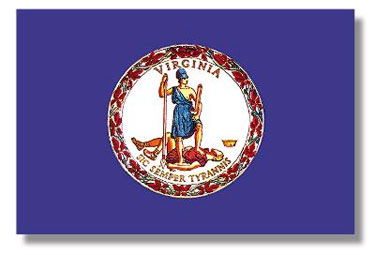The federal false claims act creates liability for any person submitting false claims but does not define the term person
The federal False Claims Act creates a cause of action against any “person” who makes false or fraudulent claims to the government for money, or who engages in other broadly-defined conduct with regard to government funds. The federal FCA does not however define the term “person.”
A couple of weeks ago the U.S. Court of Appeals for the Fourth Circuit issued an opinion on this point in United States ex rel. Oberg v. Pennsylvania Higher Education Assistance Agency, et al. I think the opinion should prove interesting to readers. The opinion addresses the category of “persons” who can be liable for submitting false or fraudulent claims. Specifically, the opinion addresses whether entities created by state governments can be liable for submitting false or fraudulent claims to the federal government.
This opinion should be of particular interest to those of us with an interest in state false claims act statutes. Over the last 25 years or so, state governments everywhere have created a vast array of boards, commissions, authorities, etc. to handle the increasingly-complex work of state governments. As a result, there are many unanswered questions about whether a particular state-created board or authority can be a defendant in either a federal FCA case or even a state FCA case under a statute like the Virginia Fraud Against Taxpayers Act.
Some background will no doubt be helpful.
PERSONS OF INTEREST IN FALSE CLAIMS ACT LITIGATION
Over the 14 years or so, a number of SCOTUS opinions have clarified who is – and who is not – a “person.”
The first SCOTUS opinion to consider whether a state government was a person was Vermont Agency of Natural Resources v. United States, ex rel. Stevens, 529 U.S. 765, 120 S.Ct. 1858, 146 L.Ed.2d 836 (2000). There, the Supreme Court held that a state or state agency does not constitute a “person” subject to liability under the Act. The Court also noted that corporations, by contrast, are presumptively covered by the term person. Three years later, SCOTUS applied the latter presumption and held that municipal corporations – in that case, counties – are ‘persons’ subject to suit under the FCA. Cook County v. U.S. ex rel. Chandler, 538 U.S. 119, 123 S.Ct. 1239, 155 L.Ed.2d 247 (2003).
It is against that backdrop that Mr. Oberg’s case must be considered.
The Fourth Circuit Opinion in US ex rel. Oberg v. Pennsylvania Higher Education, et al.
Oberg brought an action in his official capacity as a qui tam relator against the Pennsylvania Higher Education Assistance Agency, the Vermont Student Assistance Corporation, and the Arkansas Student Loan Authority. These entities were established by their respective states to improve access to higher education by originating, financing, and guaranteeing student loans. Oberg alleged that each entity defrauded the U.S. Department of Education and violated the False Claims Act by submitting false claims for a student loan interest subsidy.
Defendants moved to dismiss the relator’s complaint, arguing that they were “arms” of their respective states, and as such, were not “persons” subject to qui tam suits under the False Claims Act.
The Fourth Circuit opinion starts by differentiating between Eleventh Amendment immunity from suit and the statutory framework set forth by the FCA. While the Eleventh Amendment does make states immune from suit in most circumstances, that is not the appropriate starting point for analyzing whether a state agency is immune from a suit under the federal False Claims Act. Rather, the appropriate starting point for FCA liability is whether the defendant is a “person” who can be liable under the FCA.
Stated a slightly different way, Eleventh Amendment immunity is not an affirmative defense to be asserted and proved by the defendant; it is a prerequisite to liability and must be alleged and ultimately proved by the relator or by the government.
The Fourth Circuit applied the classic “arm of the state” test, which consists of four nonexclusive factors: (1) “whether any judgment against the entity as defendant will be paid by the State;” (2) “the degree of autonomy exercised by the entity, including such circumstances as who appoints the entity’s directors or officers, who funds the entity, and whether the State retains a veto over the entity’s actions;” (3) “whether the entity is involved with state concerns as distinct from non-state concerns;” and (4) “how the entity is treated under state law, such as whether the entity’s relationship with the State is sufficiently close to make the entity an arm of the State.”
The Court concluded that remand was necessary to permit limited discovery as to whether the Pennsylvania Higher Education Assistance Agency and the Virginia Student Assistance Corporation were proper defendants under FCA; with regard to the Arkansas Student Loan Authority, the Court determined that that entity was indeed an arm of the state, and thus could not be liable for false claims submitted to the United States.
![]()
